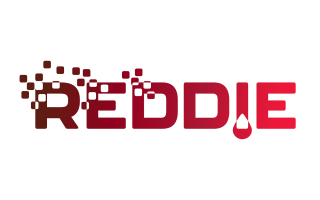New EU Research Project REDDIE Investigates Use of Real-World Data to Improve Health Technology Assessments and Regulatory Guidance for Diabetes Care
Diabetes is a major, growing threat to human health. The International Diabetes Federation (IDF) estimates that 10 % of the global adult population will have diabetes by 2030. In Europe, 60 million people are currently diagnosed with diabetes, and 36 million are at risk. Clinical decision-making in diabetes care is mainly driven by randomised controlled trials (RCTs), the cornerstone of evidence-based medicine. However, using real-world data could, in some cases, confirm, complement and augment data from RCTs. In other circumstances, it could address research questions where traditional RCTs are unfeasible or unethical.
The new research project REDDIE aims to introduce real-world and synthetic data in regulatory advice and/or health-technology assessments to supplement data from RCTs. This will significantly assist decision-making processes and boost the rapid evaluation of the safety, efficacy and cost-effectiveness of drugs and digital health devices related to diabetes. Eurice is proud to join the 14-partner-strong consortium of leading international players from seven countries.
"Next to other innovative projects such as Hypo-RESOLVE and MELISSA, we are excited to expand our portfolio of diabetes-focused research projects," asserts Jakob Haardt, Head of Eurice’s Berlin office. "It is important to enable more accurate decision-making processes and augment data from RCT with real-world data to significantly assist regulators, payers and guideline makers in their decision-making processes to improve the lives of people living with the condition."
Introducing real-world data in regulatory advice and health technology assessment to supplement RCTs could have an immense impact. Due to the vast amount of data available, targeted research would be carried out much faster, which, in turn, would significantly reduce the time until new medicines arrive on the market. Not only would this mean that an estimated 400,000 European lives might be saved every year, but it could also have a significant economic effect, considering the IDF’s estimate that health expenditure for diabetes will top 10 % of total health expenditure and reach USD 125 billion by 2030.
"In this project, we will first define a typical target parameter of an RCT and then look for all people exposed to the same intervention in four comprehensive European real-world databases (Sweden, Denmark, Germany and England). In this way, we ‘recreate’ the RCT trial within the real-world databases. Due to the large amount of real-world data we have available, e.g. as a result of continuous glucose monitoring systems in diabetes (which measure blood glucose every few minutes, 24 hours a day), we will get much faster answers to our research questions, tested in a much bigger cohort than this would ever be possible with RCTs," explains Dr Julia Mader, Associate Professor of Internal Medicine, Diabetology at the Medical University of Graz and coordinator of the REDDIE project.
To guarantee a high level of quality of the real-world data sources, the consortium will develop a new quality standard system (GRADE) for judging data quality and outcomes from real-world and synthetic data.
In addition, REDDIE aims to develop a new machine learning and artificial intelligence-based framework that allows researchers to conduct retrospective observational studies based on real-world data in a fully automated manner. This will speed up research and extend the number of research datasets immensely. The ability of these machine learning methods will be tested in four big RWD databases in Sweden, Denmark, Germany and England.
"The use of real-world data will also help us perform virtual trials in populations usually excluded from or underrepresented in randomised controlled studies – like people living with type 2 diabetes younger than 40 years or older individuals with multi-morbidities," highlights Dr Mader.
The ultimate goal of REDDIE is to integrate the project results (including the GRADE quality standard system) into new data-driven decision-making processes, especially for novel glucose-lowering medication and diabetes technology, including digital health innovations.
Funded through the European Union’s Horizon Europe Framework Programme for Research and Innovation, the project will receive EUR 4.78 million over the next four years. REDDIE is coordinated by the Medical University of Graz. The project officially kicks off its activities with a first meeting in Graz, Austria, between 14 and 15 February 2023.
